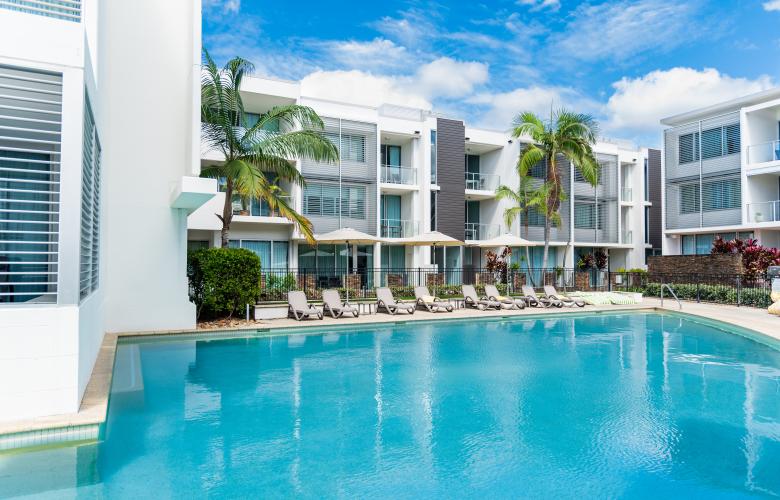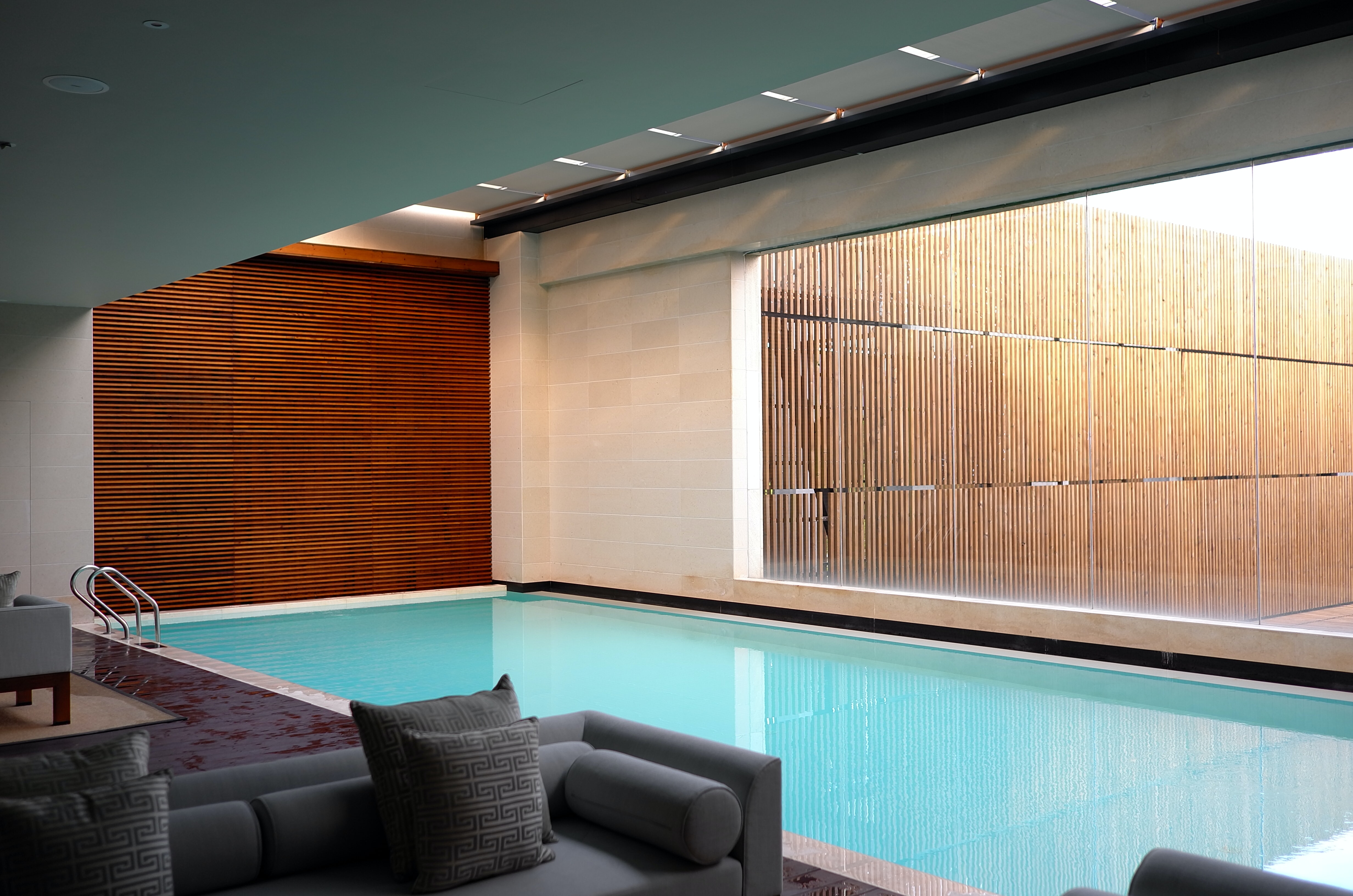The Road to Revenue Recovery: Post-Lockdown Hotel Strategies
Contact
The Road to Revenue Recovery: Post-Lockdown Hotel Strategies
IDeaS Revenue Solutions Asia Pacific Vice President Rachel Grier examines the road back for Australia's hotel industry following COVID-19.
The implementation of coronavirus-related travel restrictions across Australia led to many properties standing-down staff, or closing entirely, while others pivoted to provide services to quarantined travellers and healthcare workers.
While COVID-19 has caused significant disruption to the local hotel sector, the country is in the fortunate position of reporting relatively low levels of community transmission.
Such has been the success of social distancing and isolation efforts in Australia that (like New Zealand) the country might even be presented with the possibility of eliminating the virus locally.
This situation may allow for the government to open Australian society more widely and sooner than initially expected, returning some form of normal day-to-day business and leisure travel at a local level over coming months – while still maintaining strict international travel and quarantine restrictions to guard against overseas infection.
Given the unique position that both Australia and New Zealand might find themselves in the future, virtually eliminating the virus across both countries, the possibility of creating a protected Trans-Tasman travel corridor (or even a wider pacific region travel bubble) has been floated.
Such an agreement would allow business and tourism to freely occur between both nations to benefit local economies, insulated against the spread of the coronavirus internationally.
But what would a domestic, or Trans-Tasman hotel market recovery look like when the threat of COVID-19 has not fully passed and international business will be limited?
Who should hotels target as potential guests and how can they attract travellers through the post-lockdown period? And what will be the ‘new normal’?
IDeaS Area Vice President for the Asia Pacific, Rachel Grier. Source: IDeaS
The rise of the micro-traveller
When travel restrictions are eased, demand for leisure travel and business bookings can be expected to return (in some form) and grow over time, barring a second wave of coronavirus infection occurring.
While there may be a degree of wariness amongst some people to travel long distances immediately following lockdown restrictions lifting, there will undoubtedly also be a pent-up level of demand.
Forward-booking data in Europe has highlighted a rise in micro-travel amongst future guests.
Accommodation booking trends in markets like Germany show demand is returning for leisure travel with a large segment of travellers booking in locations close by, often within a three-to-four-hour drive of their primary place of residence.
Analysing booking trends in other global markets, accommodation providers in Europe and North America are seeing strong interest from guests for their summer period – in particular, if they operate properties outside of major metropolitan areas.
Operators of caravan and holiday parks are seeing a growth in bookings compared to major city-based hotels.
Additionally, eco-lodges or boutique properties in rural areas, smaller towns, or those coastally based are also benefiting from higher levels of demand.
These trends are likely to extend to the Australian market where city-bound leisure travellers seek to escape their city for a quiet holiday or change of scenery featuring open space.
Closer to home, the closure of state borders within Australia (such as Queensland and Tasmania) will likely lead to micro-travel holidays at locations within driving (rather than flying) distance.
Highly publicised airline industry woes and travel insurance cancellation claim complications may result in a reticence for people to book flight and hotel package holidays, further endorsing the return to self-drive short breaks to destinations within state borders.
State and federal politicians, along with the local business community, will also welcome the surge in localised spending and aim to keep this revenue on-shore and in-state as much as possible.
Reaching these future micro-travelers will be primarily via direct channels and therefore social media promotion is key. It is no surprise that isolation measures have led to a huge rise in the number of people browsing social media as more people are forced to cancel plans and stay inside.
Reductions to marketing budgets during the crisis has resulted in search and display advertising on social media platforms such as Facebook and Instagram becoming much more cost effective.
Geo-based campaigns focused on people who live within three to four hours of the property is a relatively simple advertising option that should be step one on the road to recovery, as is targeting people based on the pages they already like nearby.
For example, if many people have ‘liked’ a tourist attraction, marketing can target them with a package to come visit again, knowing they already enjoy the area and many people may feel safer going somewhere they know.
City-based hotels can package rooms with parking and social-distancing-friendly activities such as cycling or exclusive private dining experiences.
Promoting these packages on social media will enable you to take advantage of the organic reach prompted by travellers tagging friends and family.
Source: IDeaS
Target and reward brand loyalists
Targeting new guests and broadening your customer base while some form of social isolation is in place will not be easy, especially if quarantine measures are still in place for international travel.
As a result, hoteliers need to focus part of their market re-entry strategy on those people who know and trust the property already: past guests and loyalty club members.
These potential guests are likely to already have a degree of understanding of a property’s physical attributes and confidence in the hotel’s management to provide a safe and enjoyable stay, which is all important in a disrupted market.
The advantage of targeting return guests as part of any hotel promotional efforts is also that outreach and engagement of this segment can be undertaken in a cost-effective manner.
Email marketing allows hotels to communicate with their past guests at specific times throughout the customer journey, such as prior to arrival, during their stay and after checking out.
Additionally, hotels have valuable insights (and data) on their past guests, which means they can send specific messaging to these individuals (promote incentives such as welcome-back packages and special offers) to drive direct bookings.
Capturing direct business
Capturing direct bookings through a hotel’s own website and avoiding costly OTAs has never been more important, as every booking not filtered through a third-party provides extra revenue that can directly assist a hotel’s own recovery.
However, for a hotel to drive more direct business, it is essential its website architecture delivers an enhanced customer experience with user-friendly features that enable easy navigation, ease of booking and as many payment options as possible.
A hotel’s website must also be informative, enabling customers to be assured of the service standards of the hotel.
To enhance credibility amongst potential new guests in a post-lockdown period, hotel websites need to include details of the property’s enhanced cleaning and hygiene measures and include user-generated content from social media and user ratings and reviews.
It goes without saying that websites should be optimized for tablets and smartphones to support the widest access for their platform online as possible.
And finally, hotel websites must also reflect accurate prices for different room classes and have a prominent best-rate guarantee and details of cancellation policies in place to secure guests over powerful third-party booking platforms.
Sell safety
Guests will understandably be wary of putting themselves at unnecessary risk after social isolation measures are eased, and as such hotels need to clearly communicate their enhanced sanitation protocols.
For upmarket or larger scale properties, this could extend to sectioning off a wing (or several floors) of their hotel where not only enhanced cleaning measures are practiced, but where only guests and staff who have undergone onsite COVID-19 tests (temperature or antibody) are permitted access.
This area could be charged out at a premium to cover the costs of testing and marketed toward wealthier clientele or business travellers whose employers may be more likely to cover extra costs to ensure executive safety.
Hotels should highlight their cleaning and hygiene protocols clearly in promotional EDMs, on booking information and within rooms.
Where once making cleaning shifts visible throughout the day was avoided by hoteliers, it should now be encouraged to increase the frequency of cleaning and make this visible to guests seeking reassurance of their own safety.
Hand sanitizers should continue to be made available at all guest contact points (such as check-in desks) and within rooms.
Additionally, new services like accommodating special medical needs and facilitating in-room meal deliveries from outside providers (like Uber Eats) should also be publicized in order to demonstrate ways in which the hotel is seeking to limit guest exposure and protect their well-being.
Begin your own recovery
The Australian accommodation sector was among the first industries to be impacted by COVID-19 and a full market recovery will take some time and will be dependent on local and international efforts to manage the virus.
As lockdown measures begin to ease across the country, opportunities exist over the coming months for hoteliers to resume operations and position their property as a safe and credible accommodation provider to potential guests.
Through understanding market trends and targeting, likely guests sensitively with the right promotion and the right message at the right price, hotels will be best placed to begin their own recovery.
As IDeaS’ Managing Director, Asia-Pacific, Rachel Grier is responsible for growing IDeaS Asia business and enhancing the company’s leading brand reputation in the dynamic Asia hospitality sector. With more than two decades of experience, she has a record of growing businesses in the regional hospitality and travel sectors across a range of established and emerging markets in Asia, Pacific and the Middle East.
Click here for more information about IDeaS.
Similar to this:









